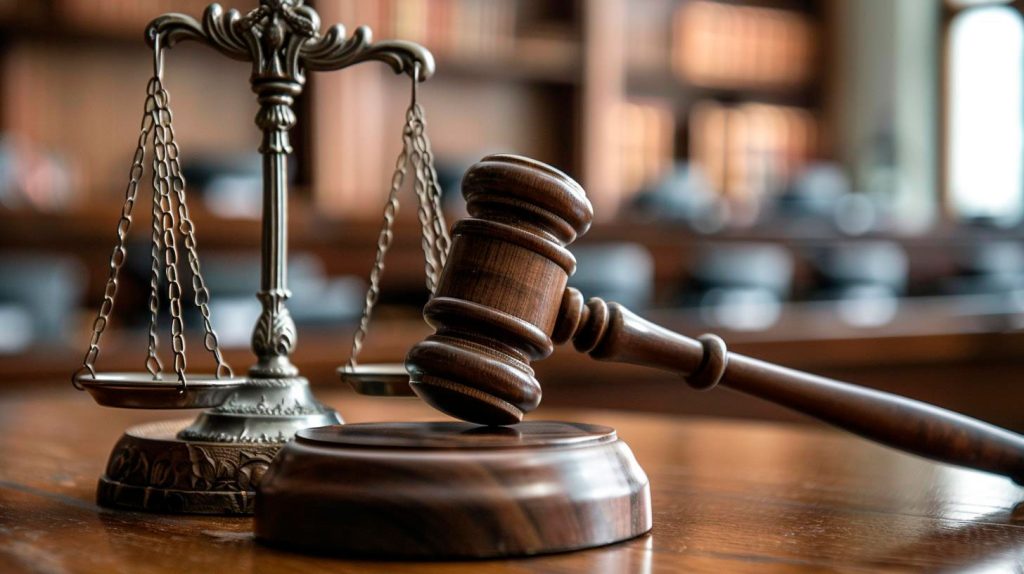
Legal Strategies for Disputing Inaccurate Information on Credit Reports
Unfortunately, errors on credit reports are more common than you might think, and these inaccuracies can have serious consequences for your financial well-being.
As a leading provider of lawyer services, we understand the importance of taking proactive steps to dispute inaccurate information on your credit report. In this article, we will discuss some legal strategies that you can use to challenge errors on your credit report and protect your financial reputation.
Understanding the Impact of Inaccurate Credit Information
Before delving into the legal strategies for disputing inaccurate credit information, it’s important to understand the potential consequences of having errors on your credit report. Inaccurate information can lower your credit score, making it harder for you to qualify for loans or credit cards with favorable terms. This can result in higher interest rates, increased insurance premiums, or even denial of credit altogether.
According to a recent study by the Federal Trade Commission (FTC), one in five consumers has an error on their credit report that could negatively impact their credit score. This highlights the prevalence of inaccuracies in credit reports and the need for consumers to take action to correct these errors.
Legal Strategies for Disputing Inaccurate Credit Information
1. Review Your Credit Report Regularly
The first step in disputing inaccurate information on your credit report is to review your credit report regularly. By reviewing your credit report at least once a year, you can identify any errors or discrepancies and take action to correct them. You are entitled to a free copy of your credit report from each of the three major credit bureaus – Equifax, Experian, and TransUnion – once every 12 months.
2. File a Dispute with the Credit Bureaus
If you identify errors on your credit report, the next step is to file a dispute with the credit bureaus. You can do this online, by mail, or over the phone. The credit bureaus are required by law to investigate the dispute within 30 days and remove any inaccurate information from your credit report. Be sure to provide any supporting documentation or evidence to support your claim.
3. Contact the Creditor Directly
In addition to filing a dispute with the credit bureaus, it’s also a good idea to contact the creditor directly to inform them of the inaccuracies on your credit report. The creditor is responsible for updating the information they provide to the credit bureaus, so reaching out to them can help expedite the process of correcting the error.
4. Seek Legal Assistance
If you are unable to resolve the dispute on your own, it may be necessary to seek legal assistance. An experienced attorney can help you navigate the complex laws and procedures surrounding credit reporting and ensure that your rights are protected. They can also help you explore other legal options, such as filing a lawsuit against the credit bureaus or creditors for damages.
The Benefits of Disputing Inaccurate Credit Information
Disputing inaccurate information on your credit report can have numerous benefits, including:
- Improving your credit score
- Qualifying for better loan terms and interest rates
- Protecting your financial reputation
- Preventing identity theft and fraud
By taking proactive steps to dispute errors on your credit report, you can ensure that your credit history is an accurate reflection of your financial behavior. This can have a positive impact on your overall financial well-being and put you on the path to a brighter financial future.
State-Specific Laws Navigating Complex Credit Repair Regulations
The Importance of State-Specific Laws
Each state has its own set of laws governing credit repair, and these laws can vary significantly from one jurisdiction to another. For example, some states may have stricter regulations on credit repair companies, requiring them to be licensed and bonded, while others may have more lenient requirements.
Understanding state-specific laws is essential for anyone involved in credit repair, whether you are a consumer looking to improve your credit score or a business offering credit repair services. Failing to comply with these laws can result in legal consequences, including fines and lawsuits.
Benefits of Compliance
By following state-specific laws governing credit repair, individuals and businesses can avoid potential legal pitfalls and protect themselves from liability. Compliance with these laws also helps to build trust with clients and demonstrate a commitment to ethical practices.
In addition, adhering to state-specific regulations can help to improve the overall reputation of the credit repair industry and promote consumer confidence. By operating within the boundaries of the law, credit repair companies can ensure that they are providing legitimate and effective services to their clients.
Industry Statistics
According to recent industry statistics, the credit repair market is projected to grow significantly in the coming years, with an increasing number of consumers seeking ways to improve their credit scores. This growth is being driven by factors such as the rising importance of credit in today’s economy and the increasing awareness of the benefits of good credit.
Despite this growth, the credit repair industry continues to face challenges related to regulatory compliance. Many credit repair companies struggle to navigate the complex legal landscape surrounding credit repair, leading to potential legal risks and negative consequences for consumers.
At our firm, we are committed to helping our clients navigate the complex credit repair regulations in their state and ensure compliance with the law. Our team of experienced lawyers is well-versed in state-specific laws governing credit repair and can provide expert guidance to individuals and businesses seeking to improve their credit standing.
By understanding and adhering to state-specific regulations, our clients can protect their rights, avoid legal pitfalls, and build trust with their customers. Compliance with the law is essential for the long-term success of any credit repair business, and we are here to help our clients achieve their goals while staying on the right side of the law.
Understanding the Scope of Credit Repair Laws
The Fair Credit Reporting Act (FCRA)
One of the most important laws that govern credit repair is the Fair Credit Reporting Act (FCRA). This federal law regulates the collection, dissemination, and use of consumer credit information. Under the FCRA, consumers have the right to dispute inaccurate information on their credit reports and have it corrected or removed. Credit repair companies must comply with the requirements of the FCRA and ensure that they are not engaging in any deceptive practices.
Benefits of the FCRA
- Protection from inaccurate credit reporting
- Ability to dispute and correct errors on credit reports
- Increased transparency in the credit reporting process
The Credit Repair Organizations Act (CROA)
Another important law that governs credit repair is the Credit Repair Organizations Act (CROA). This federal law sets forth specific requirements for credit repair companies, such as providing consumers with a written contract and outlining the services that will be performed. The CROA also prohibits credit repair companies from making false claims or charging upfront fees before services are rendered.
Benefits of the CROA
- Protection from deceptive practices by credit repair companies
- Requirement for clear and transparent communication between consumers and credit repair companies
- Prohibition of upfront fees for credit repair services
The Fair Debt Collection Practices Act (FDCPA)
In addition to the FCRA and CROA, the Fair Debt Collection Practices Act (FDCPA) is another important law that governs the credit repair process. The FDCPA regulates the actions of debt collectors and prohibits them from engaging in abusive, deceptive, or unfair practices when attempting to collect a debt. Consumers have the right to dispute a debt and request validation from debt collectors under the FDCPA.
Benefits of the FDCPA
- Protection from abusive debt collection practices
- Requirement for debt collectors to provide accurate and verifiable information about debts
- Ability to dispute and validate debts before payment
Remember, knowledge is power when it comes to credit repair. By staying informed about your rights under the FCRA, CROA, and FDCPA, you can take control of your financial future and work towards achieving a better credit score. Let us help you navigate the legal landscape of credit repair and empower you to make informed decisions about your financial well-being.
Federal Regulations and Consumer Protections in the Legal Industry
Consumer Protections in the Legal Industry
One of the key consumer protections in the legal industry is the requirement for lawyers to uphold a code of professional conduct. This code dictates that lawyers must act in the best interests of their clients, maintain confidentiality, and avoid conflicts of interest. It also prohibits lawyers from engaging in unethical practices, such as misrepresenting their qualifications or charging excessive fees.
Furthermore, the legal industry is regulated by state bar associations, which oversee the licensing and behavior of lawyers within their jurisdiction. These associations have the authority to discipline lawyers who violate ethical standards or fail to meet their professional obligations.
Federal Regulations Impacting the Legal Industry
In addition to consumer protections, there are also federal regulations that impact the legal industry. For example, the Fair Debt Collection Practices Act (FDCPA) regulates the practices of debt collectors and prohibits abusive, unfair, or deceptive practices in debt collection. This law aims to protect consumers from harassment and unfair treatment by debt collectors.
Another important federal regulation is the Truth in Lending Act (TILA), which requires lenders to disclose key terms and costs of credit transactions to consumers. This includes information about interest rates, fees, and other charges associated with loans, allowing consumers to make informed decisions about borrowing money.
Benefits of Federal Regulations and Consumer Protections
The existence of federal regulations and consumer protections in the legal industry provides several benefits to consumers. For starters, these regulations help to level the playing field between consumers and lawyers, ensuring that clients are not taken advantage of or subjected to unethical practices.
Moreover, these regulations promote transparency and accountability within the legal industry, encouraging lawyers to act in the best interests of their clients and maintain high ethical standards. By holding lawyers accountable for their actions, these regulations help to build trust and confidence in the legal profession.
Statistics on Consumer Protections and Legal Industry Regulations
- According to a survey conducted by the American Bar Association, 85% of consumers believe that it is important for lawyers to adhere to ethical standards.
- The Consumer Financial Protection Bureau reported that there were over 84,500 complaints about debt collection practices in 2020, highlighting the need for regulations like the FDCPA.
- A study by the Federal Trade Commission found that more than 20% of consumers had errors on their credit reports that could impact their ability to obtain credit.
As a leading provider of lawyer services, we are committed to upholding the highest ethical standards and complying with all relevant regulations to protect our clients and provide them with the best possible legal representation.













Do I have to pay a lot of money to hire a credit repair company, or can I do it on my own for free? Trying to save some cash here.
Hey, I heard that some credit repair companies are scams. How do I know if I’m getting legit help or not?
Yo, anyone know if there’s a legal way to fix my credit? My score is trash and I need some help.
So, like, if I miss a payment on my credit card, how long does it stay on my report? Is it forever?
Is it true that some shady credit repair companies try to get rid of accurate negative items on your report? Seems sketchy to me.
What’s the deal with credit repair laws? Are there specific rules companies have to follow to help you fix your credit?
Hey, does anyone know if there are any government programs that can help with credit repair? I could use a little assistance.
Can I dispute negative items on my credit report myself without a lawyer? Is that even legal?
Is it legal for creditors to report inaccurate information on my credit report? Can I sue them if they mess up?
Yo, can a credit repair company actually guarantee that they’ll improve my credit score? Sounds too good to be true.